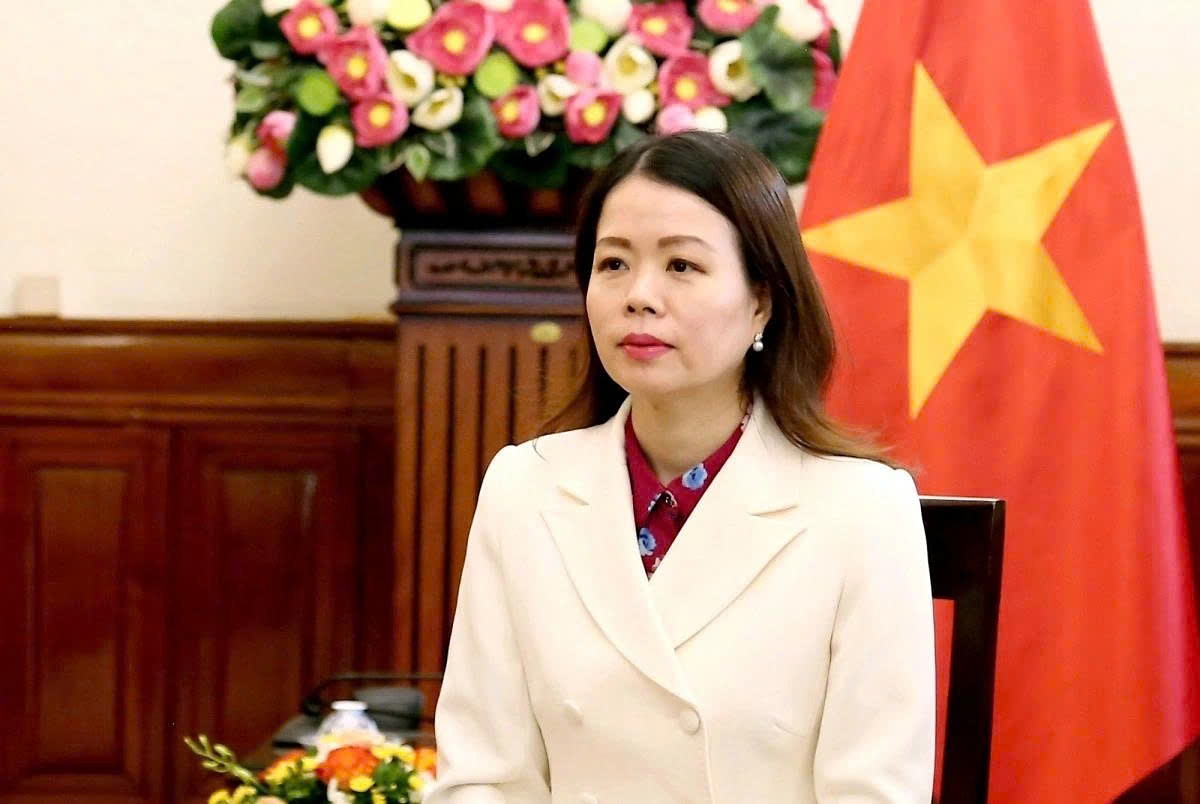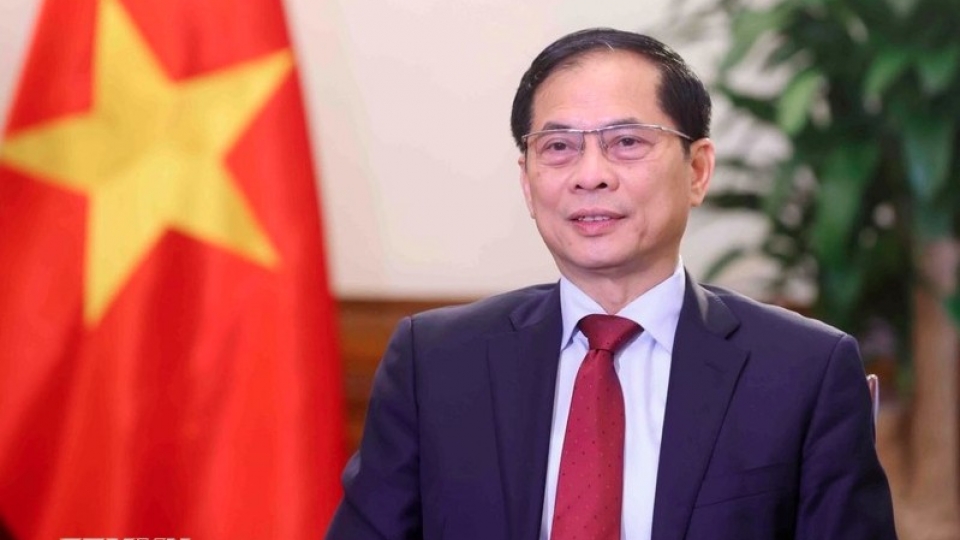Economic diplomacy to drive Vietnam’s strategic growth amid global uncertainty
VOV.VN - Amid growing global uncertainties, Vietnam is adapting to new trends and opportunities, with economic diplomacy poised to expand development space, enhance competitiveness, and strengthen strategic economic autonomy, according to Deputy Minister of Foreign Affairs Nguyen Minh Hang.

Speaking to the media on the occasion of the 80th anniversary of Vietnam's diplomatic service (August 28), Hang affirmed that economic diplomacy has undergone a significant transformation. It is no longer merely a supporting tool but has evolved into a key driver of policymaking and strategic positioning in the international economic landscape.
She noted that economic diplomacy has made continuous efforts to deepen Vietnam’s relations with other countries, particularly in the areas of economy, trade, and investment. It plays a crucial role in promoting international economic integration and connectivity, while swiftly and proactively mobilising external resources to fuel new growth drivers, especially green finance, energy transition investments, and high-quality capital flows.
At the same time, she added, economic diplomacy supports localities and Vietnamese businesses in promoting exports, attracting investment, and expanding cooperation abroad. It focuses on unlocking access to new and potential markets, while resolving bottlenecks to enable wider market reach. In addition, it provides timely, strategic policy advice to the Government by closely aligning with domestic demands and development priorities.
Drawing from practical experience, the Deputy Foreign Minister highlighted four key lessons essential for the success of economic diplomacy.
First, she said, it is crucial to maintain consistency in strategic direction by aligning closely with major Party and State policies, while also exercising flexibility and decisiveness to seize emerging opportunities. Second, fostering unity across the entire political system and actively engaging with the business community are vital that requires close coordination among ministries, sectors, localities, and enterprises to build collective strength.
Third, economic diplomacy must remain responsive to global trends by continuously monitoring international developments and aligning them with domestic priorities to ensure effective and timely responses. Finally, enhancing strategic foresight through robust research and policy advisory capacity is necessary to identify and leverage Vietnam’s unique advantages and competitive strengths in the global economy.
According to the diplomat, the global economy is undergoing profound, rapid, complex, and unpredictable changes driven by new trends and emerging growth drivers. To effectively respond to these challenges, economic diplomacy must undergo a strong transformation, shifting its focus from quantity to quality, and from simply attracting resources to actively creating opportunities.
Upholding the spirit of the Politburo’s Resolution 59 on international integration in the new context, Vietnam’s economic diplomacy will no longer be content with following or joining existing frameworks. Instead, it aims to contribute both intellectual and practical strength to building and shaping cooperation mechanisms, optimising resources for development, and laying a firm foundation for the country’s new space of growth, she said.
The role of economic diplomacy will also expand beyond traditional trade and investment promotion to include more specialised areas such as science and technology diplomacy and green diplomacy.
The Deputy Minister also outlined key priorities for advancing economic diplomacy in the coming period. In her view, economic diplomacy should place greater focus on embedding economic content into foreign affairs activities, particularly at the high-level diplomatic level. Priority should be given to strategic, feasible programmes and projects with clear outcomes, while enhancing mechanisms for monitoring and follow-up to ensure that high-level commitments are promptly and effectively implemented.
At the same time, there is a need to continuously renew traditional growth drivers such as investment, exports, and tourism. This includes making the most of existing free trade agreements, expanding access to emerging markets like the Middle East, Latin America, and Central Asia, and promoting diversification across markets, products, and supply chains. Economic diplomacy should also play a stronger role in supporting Vietnamese businesses to integrate more deeply into global production and supply chains.
Improving the quality and relevance of research and policy advisory work is another important priority. Research efforts must be grounded in real-life developments, closely linked with domestic realities, and aimed at generating timely and targeted policy recommendations that both shape long-term strategic vision and stimulate key development pillars at home.
It’s vital for economic diplomacy to be tightly linked with the broader international integration agenda. Vietnam should take a proactive role in shaping the emerging global frameworks and standards, especially in strategically significant sectors that influence the future of the global economy.
In parallel, the country must actively pursue and accelerate new drivers of growth, particularly in science, technology, and innovation.
Last but not least, the Deputy Minister said, economic diplomacy should work in close coordination with ministries and local governments to remove longstanding large-scale project bottlenecks, creating momentum for attracting high-quality, sustainable investments in the years ahead.




